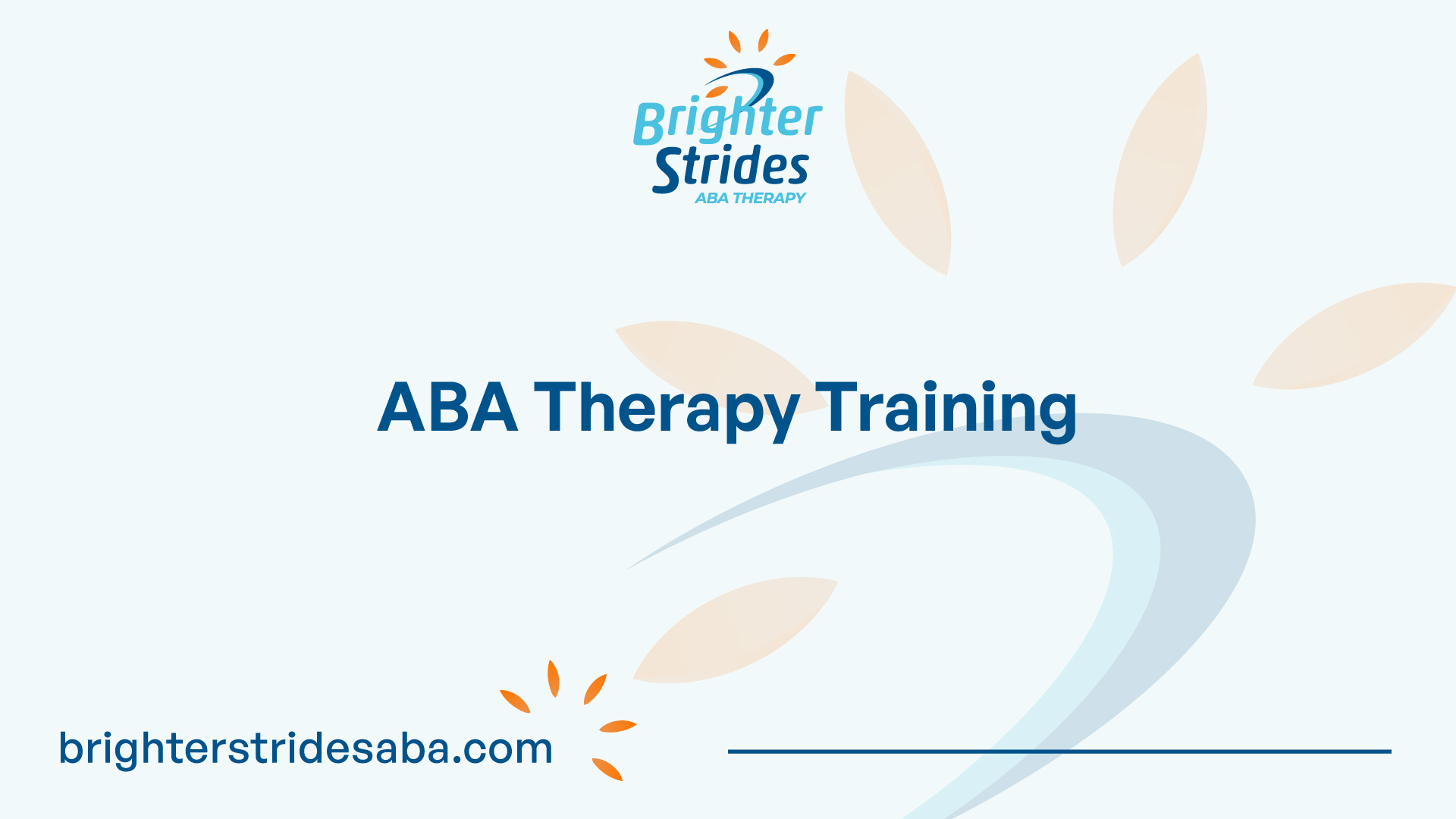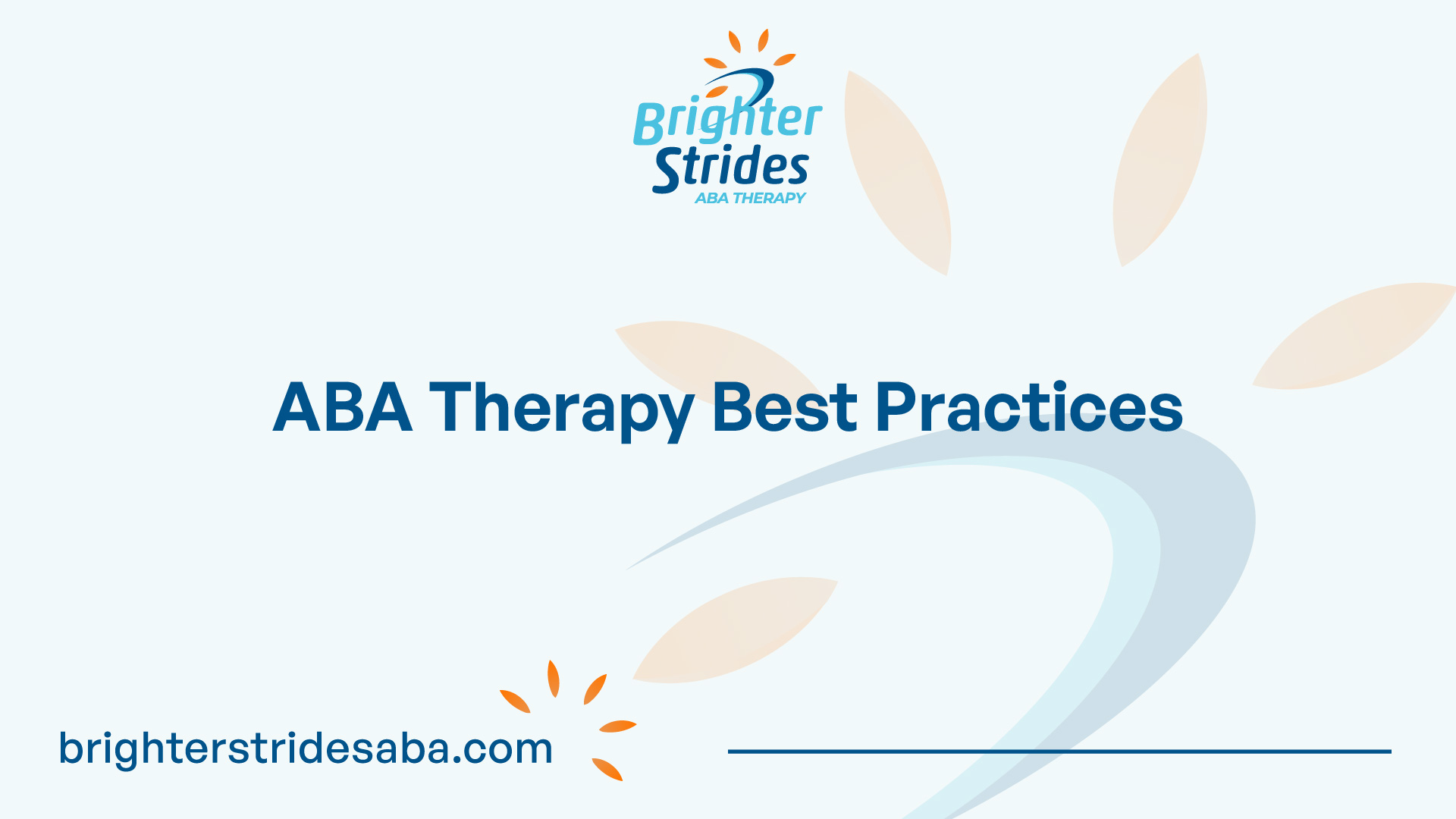
ABA Therapy Certification Overview
To become a certified professional in Applied Behavior Analysis (ABA) Therapy, individuals must meet specific certification requirements and complete accredited programs.
Certification Requirements
Certification in ABA therapy typically involves meeting specific requirements set by recognized certifying bodies. These requirements may vary slightly depending on the certification board, but generally include the following:
- Graduate Degree: Obtaining a graduate degree in a relevant field is one of the foundational requirements for ABA therapy certification. The degree must meet the educational criteria set by the certifying board.
- Coursework in Behavior Analysis: Completing coursework in behavior analysis is an essential component of ABA therapy certification. The coursework covers topics such as principles of behavior, behavior assessment, and intervention strategies.
- Supervised Practical Experience: Accumulating supervised practical experience is a crucial aspect of ABA therapy certification. Individuals must complete a specified number of supervised hours working directly with clients under the guidance of a qualified supervisor.
- Certification Examination: Passing a certification examination is typically required to obtain ABA therapy certification. The examination assesses knowledge and competency in the field of ABA therapy.
Accredited Programs
Accredited certification programs in ABA therapy offer structured curricula, supervised experience opportunities, and examination requirements to equip individuals with the necessary knowledge, skills, and competencies to effectively implement ABA therapy techniques [1].
Choosing an accredited certification program in ABA therapy is important as it ensures that individuals receive training from reputable institutions and that their certification is recognized within the field. By completing an accredited program, individuals enhance their credibility, expand career opportunities, and contribute to the development and implementation of effective ABA therapy interventions.
For individuals aspiring to become Board Certified Behavior Analysts (BCBAs), it is important to note that a master’s degree is required to qualify for board certification. The program must incorporate the Verified Course Sequence (VCS) outlined by the Association for Behavior Analysis International (ABAI) [2]. BCBA certification allows for more independence and higher salaries compared to Board Certified Assistant Behavior Analysts (BCaBAs), with the average annual salary for Applied Behavior Analysts with BCBA certification being $102,900 in 2021.
By fulfilling the certification requirements and completing accredited programs, individuals can establish a strong foundation in ABA therapy and advance their career in this rewarding field.
Importance of ABA Certification
When it comes to ABA therapy, certification holds significant importance. ABA therapy certification ensures that practitioners meet specific requirements, including completing relevant coursework, accumulating supervised practical experience, and passing a certification examination. These requirements are in place to equip individuals with the necessary knowledge, skills, and competencies to effectively implement ABA therapy techniques in a safe and effective manner [1].
Benefits of Certification
Obtaining ABA therapy certification offers a range of benefits for professionals in the field. These benefits include:
- Enhanced Credibility: Certification demonstrates to employers, clients, and colleagues that an individual has met rigorous standards and possesses the necessary skills and knowledge to provide high-quality ABA therapy services.
- Expanded Career Opportunities: ABA therapy certification opens doors to a wider range of career opportunities. Many employers in the field require certification as a prerequisite for hiring, making it an essential qualification for advancement and job security.
- Recognition within the Field: Certification from an accredited program in ABA therapy ensures that individuals receive training from reputable institutions and that their certification is recognized within the field. This recognition enhances credibility and contributes to the development and implementation of effective ABA therapy interventions.
Credibility and Career Growth
Certification in ABA therapy not only enhances credibility but also plays a crucial role in career growth. ABA therapists with certification are recognized as professionals who have met specific educational and experiential requirements. This recognition opens doors to higher-level positions, increased responsibilities, and the potential for higher salaries.
Furthermore, certification in ABA therapy is often required by insurance companies and regulatory bodies. Having the necessary certification ensures compliance with industry standards and regulations, allowing ABA therapists to provide services to a broader range of clients and receive reimbursement for their services.
By emphasizing the importance of certification and training, the ABA therapy field promotes the delivery of high-quality, evidence-based interventions. This ensures that individuals receiving ABA therapy are provided with the best possible care and support.
In summary, ABA therapy certification offers numerous benefits, including enhanced credibility, expanded career opportunities, and recognition within the field. It plays a vital role in promoting the delivery of high-quality interventions and contributes to the growth and professionalism of the ABA therapy field.

ABA Therapy Training
To become a qualified ABA therapist, individuals must undergo comprehensive training that encompasses both theoretical knowledge and practical experience. This training equips professionals with the necessary skills to effectively apply the principles and techniques of Applied Behavior Analysis (ABA) in real-world settings.
Curriculum Overview
The curriculum for ABA therapy training covers a range of topics designed to provide a solid foundation in behavior analysis. Courses typically include the following:
- Introduction to ABA: This course introduces the basic principles and concepts of ABA, providing an overview of the field and its applications.
- Behavior Assessment and Analysis: Students learn how to conduct behavioral assessments, analyze data, and develop assessment-based intervention strategies.
- Behavior Change Procedures: This course delves into the various behavior change techniques used in ABA therapy, including reinforcement, prompting, shaping, and fading.
- Ethical and Professional Conduct: ABA therapists are held to high ethical standards. This course explores ethical considerations and professional guidelines specific to the field.
- Research Methods: Students learn how to conduct research in ABA, including designing and implementing studies, collecting data, and analyzing results.
It is important to note that the specific curriculum may vary depending on the program and institution. Completing a Master’s degree in Applied Behavior Analysis (ABA) or a related field is often required to become an ABA therapist. While a bachelor’s degree in psychology, education, or a similar discipline can provide a solid foundation, most positions and state licensure requirements mandate graduate-level education. Selecting a program accredited by the Association for Behavior Analysis International (ABAI) is advisable to ensure the curriculum meets the profession’s highest standards.
Practical Experience
In addition to coursework, ABA therapy training also emphasizes the importance of practical experience. ABA therapists are often expected to complete supervised fieldwork hours to gain hands-on training and develop their clinical skills. The Behavior Analyst Certification Board (BACB) requires Board Certified Behavior Analysts (BCBAs®) to complete 2,000 hours of supervised fieldwork, but they also offer a concentrated supervised fieldwork option that allows students to complete this requirement in as little as 1,500 hours.
During this supervised fieldwork, therapists work directly with individuals with behavioral challenges under the guidance and supervision of experienced professionals. This allows them to apply the principles they have learned in a real-life setting, gain practical skills, and refine their therapeutic techniques. It is through this hands-on experience that ABA therapists develop the necessary competencies to work effectively with clients and implement behavior intervention plans.
By combining a comprehensive curriculum with practical experience, ABA therapy training equips professionals with the knowledge and skills required to make a positive impact in the lives of individuals with behavioral challenges. This training sets the foundation for aspiring therapists to pursue certification and contribute to the field of ABA therapy.
Becoming a BCBA
For those interested in pursuing a career as a Board Certified Behavior Analyst (BCBA), there are specific steps and requirements to be met. The BCBA certification process involves a combination of education, experience, and passing an exam.
BCBA Certification Process
To become a BCBA, candidates must meet one of three experience options, pass the BCBA exam, and pay a nonrefundable certification fee of $245. The exam consists of 150 multiple-choice questions based on a wide range of content areas. It is important to note that the passing rate of the BCBA exam can vary among different programs across the United States [4].
The Behavior Analyst Certification Board (BACB) is the national agency that grants the BCBA credential. They set the standards for education and practice requirements that need to be met to become board certified in ABA therapy. A master’s degree is required to qualify for board-certification as a BCBA, and the program must incorporate the Verified Course Sequence (VCS) outlined by the Association for Behavior Analysis International (ABAI). This ensures that the program meets the necessary educational standards set by the BACB.
Exam and Experience Requirements
The BCBA exam assesses candidates’ knowledge in applied behavior analysis and its applications. It covers a wide range of content areas, including ethical considerations, measurement, experimental design, behavior change procedures, and more. It is essential for aspiring BCBAs to thoroughly study and prepare for the exam to increase their chances of success.
In addition to passing the exam, candidates must fulfill specific experience requirements. The BACB offers three experience options: supervised independent fieldwork, practicum, and intensive practicum. Each option has specific hour requirements that must be completed under qualified supervision.
Once all the requirements have been met, including passing the exam and completing the necessary experience, individuals can apply for BCBA certification. This nationally recognized certification is a requirement to obtain an ABA license in states across the country. BCBA certification allows for more independence and higher salaries compared to BCaBAs (Board Certified Assistant Behavior Analysts). In fact, the average annual salary for Applied Behavior Analysts with BCBA certification was $102,900 in 2021 [5].
By following the BCBA certification process, individuals can become qualified and recognized professionals in the field of ABA therapy. This certification demonstrates a high level of expertise and knowledge, providing opportunities for career growth and advancement.

ABA Therapy Best Practices
When it comes to ABA therapy, there are certain best practices that contribute to its effectiveness in helping individuals with autism learn and develop skills to improve and manage their behaviors. These best practices include an evidence-based approach and the proven effectiveness of ABA therapy for individuals with autism.
Evidence-Based Approach
ABA therapy is considered a scientific and evidence-based approach to treating autism. It is recognized as a best practice treatment by the US Surgeon General and the American Psychological Association. More than 20 studies have shown that intensive and long-term therapy using ABA principles can lead to significant improvements in intellectual functioning, language development, daily living skills, and social functioning for many children with autism.
By utilizing an evidence-based approach, ABA therapists rely on techniques and strategies that have been scientifically validated and proven to be effective. This ensures that the therapy is based on sound principles and has a higher likelihood of producing positive outcomes. ABA therapy emphasizes the use of positive reinforcement to teach and reinforce useful skills and socially appropriate behaviors. This approach helps individuals with autism acquire skills that they can use in various settings, such as home, school, or the community.
Effectiveness for Autism
ABA therapy has been shown to be effective for individuals of all ages with autism. It is particularly beneficial as an early intervention approach for children with autism, as it allows them to acquire skills that they can use throughout their lives. ABA therapy helps children with autism gain socialization and basic living skills, enabling them to function within their environments and societies. It can also assist in managing aggressive behaviors and self-injury tendencies [7].
The effectiveness of ABA therapy stems from its focus on individualized programs tailored to the specific needs of each individual with autism. ABA therapists work closely with their clients to identify goals and develop intervention plans that address their unique challenges and strengths. This individualized approach ensures that the therapy is customized to meet the specific needs of each person, maximizing the potential for positive outcomes.
By implementing the best practices of an evidence-based approach and recognizing the effectiveness of ABA therapy for individuals with autism, ABA professionals can provide high-quality interventions that support individuals in acquiring essential skills and improving their overall quality of life.
To learn more about the impact of ABA therapy and explore additional resources, check out our article on ABA therapy impact and ABA therapy online resources.
ABA Therapy Professionals
ABA therapy programs involve a team of professionals who work together to provide effective treatment for individuals with autism. Two key roles within the field of ABA therapy are that of the behavior analyst and the therapist.
Roles and Responsibilities
The behavior analyst, also known as a Board Certified Behavior Analyst (BCBA), plays a critical role in ABA therapy. These professionals are responsible for designing and overseeing individualized treatment plans, assessing progress, and making adjustments to ensure positive outcomes. BCBA’s typically hold a graduate degree and have completed specific coursework in behavior analysis. They also obtain supervised practical experience before becoming certified [6].
ABA therapy programs also involve therapists, or Registered Behavior Technicians (RBTs), who work under the supervision of BCBA’s. These therapists have specific training and are responsible for implementing the treatment plans designed by the BCBA. They work directly with individuals with autism to practice skills, promote positive behaviors, and work toward the goals set by the BCBA [6].
Supervision and Training
Supervision and training are crucial components of ABA therapy. BCBA’s provide ongoing supervision and guidance to RBTs to ensure the fidelity of the treatment plans and the delivery of high-quality services. This supervision involves regular meetings, observations, and feedback to support the professional growth of the therapists and ensure the effectiveness of the therapy.
In addition to supervision, ABA therapists also receive training in various areas, including behavioral techniques, implementing individualized programs, data collection, and behavior management strategies. This training equips them with the necessary skills to effectively support individuals with autism and help them achieve their treatment goals.
By working collaboratively and implementing evidence-based practices, ABA therapy professionals aim to make a positive impact on the lives of individuals with autism. They play a vital role in providing support, guidance, and effective interventions to help individuals develop new skills, reduce challenging behaviors, and improve their overall quality of life.
For individuals interested in pursuing a career in ABA therapy, it’s important to understand the certification requirements and training involved. To become a BCBA, specific requirements must be met, including completing a graduate degree, specific coursework in behavior analysis, obtaining supervised practical experience, and passing a certification exam. For more information on the certification process, refer to our section on BCBA Certification Process in this article.
To learn more about the impact of ABA therapy and best practices in the field, explore our articles on ABA Therapy Impact and ABA Therapy Best Practices.
References
- https://www.abtaba.com/blog/aba-therapy-certification-training
- https://www.appliedbehavioranalysisedu.org/bcba-vs-aba-certifications
- https://www.appliedbehavioranalysisedu.org/how-to-become-aba-therapist/
- https://www.appliedbehavioranalysisedu.org/bcba-vs-aba-certifications/
- https://www.autismspeaks.org/applied-behavior-analysis
- https://behavioral-innovations.com/autism-101/what-is-aba/

 We've just released an article!
Check out our blog!
We've just released an article!
Check out our blog!



